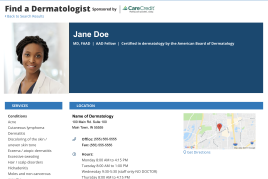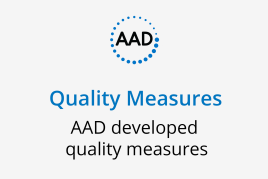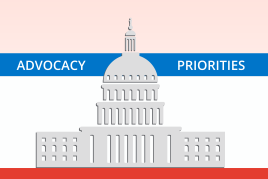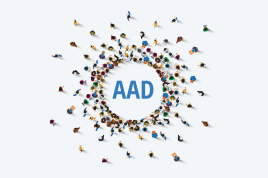Mentorship mentation: Bringing out the best of us!

By David A. Wetter, MD
Sept. 9, 2020
Vol. 2, No. 36

As in sports, life, and dermatology, stories of inspirational mentors abound, highlighting the reality that no person attains professional and personal successes solely on their own; rather, it is only the investment of selfless support and encouragement of others that allow a person’s talent to reach its potential. (1, 2) Matthew Putnam, MD, remarked: “It’s worth noting that even smart and famous people needed mentors” (3). Mentorship (whether serving as a mentor or being mentored) is particularly important during the current times, providing a readily available source of joy and gratitude helping us pierce the hovering (and seemingly constant) clouds of the COVID-19 pandemic.
Physicians recognize that even in our collaborative work environment comprising people of disparate ages, “generational differences must be recognized and embraced to achieve productive mentoring relationships” (4). In her commentary entitled “Mentoring Millennials,” Jennifer Waljee, MD, offers three strategies to enhance the effectiveness of mentoring younger physicians (4): “micromentoring” involving frequent meetings over a shorter, defined time span focusing on narrow, well-defined topics; “reverse mentoring” which allows mentees to share wisdom and skills with their mentors through bidirectional communication; and “mentorship teams” which optimize collaboration and provide diverse perspectives. Although most mentors are well-intentioned in their desire to advocate for their mentees, some mentors possess poor qualities that can undermine a successful relationship. In a commentary entitled “Mentorship Malpractice,” Vineet Chopra, MD, describes several mentor phenotypes that are counterproductive to a beneficial relationship (5). Dr. Chopra provides the following suggestions to mentees to combat potential dysfunction: “insisting on change” when “malpractice” is noted; setting clear boundaries and communicating effectively with a mentor; having several mentors (a “mentorship team”); and being empowered to “walk away” from a doomed relationship (5).
In October 2018, I was humbled and honored to give a keynote lecture during the Annual Retreat of the Harvard Combined Medicine-Dermatology Training Program. The chief resident (Molly Plovanich, MD) asked me if I would talk about my experience as a medical dermatologist at Mayo Clinic and the impact of medical dermatology on the care of complex patients. As I was nervously reflecting upon ways to craft my presentation, I realized that the topic of mentorship would allow me to achieve those aims in a very personal (and hopefully inspiring) way. I decided to intercalate “lessons learned” from patients, mentors, and colleagues throughout my lecture to serve as a foundation from which to interpret my journey as a medical dermatologist.
Several months later (in March 2019), I received an email invitation from Philip Cohen, MD, to prepare an essay for an upcoming issue of Clinics in Dermatology discussing “humanistic aspects of dermatology and medicine.” Once again I gravitated toward the theme of mentorship; but this time in a deeper way to thank those who have molded my professional identity, while highlighting mentorship as an integral component of the creation and sustainment of a joyful dermatologic practice. For those who are interested, I encourage readers to peruse the full content of these published essays (6, 7), which will hopefully inspire you to reflect upon your own dermatologic career, recognizing the mentors who have guided your professional path. I have enumerated an abridged version of my mentors (and lessons) from the essays below:
Uma Thanarajasingam, MD, PhD, (a Mayo Clinic rheumatologist and my wife) is an incredibly gifted clinician, teacher, and researcher; while these are integral parts of her identity, she does not allow them to solely define who she is and the meaning she derives from life.
Henry Clever III, MD, was my dermatologist during high school and his compassionate care spurred me to consider a career in medicine. I recently reconnected with him (after 24 years!) to tell him, and he expressed heartfelt appreciation upon hearing my story, which brought me great joy.
Mark Davis, MD, offered me a dermatologic research project during my third year of medical school and has been a mentor to me ever since. Now that I regularly serve as a research mentor to medical students and residents, it is hard to fathom that I am presently older than Dr. Davis was when we embarked upon our mentorship experience 17 years ago!
Clark Otley, MD, was our dermatology department chair during my early faculty career, and not only supported my academic growth, but emphasized the importance of staying healthy through exercise. He would be pleased to learn that during the current COVID-19 pandemic, I have gone on several 5-kilometer runs in the neighborhood with my daughter, Nisha, a 13-year-old athlete doing virtual training with her soccer team. I am proud to say, that I have mostly been able to keep up with her!
Current colleagues in the department of dermatology who have taught me diagnostic and teaching skills; work-life balance; and an appreciation of life’s beauty outside of medicine.
Numerous past and present trainees (medical students and dermatology residents) have taught me the unbridled delight that arises from working together as a team with a shared purpose in the diagnosis and treatment of our dermatologic patients. They are also teaching me about new ways of learning dermatology and sharing this information (such as JAAD podcasts, Zoom lectures, and BrowZine)!
My patients continue to teach me many lessons including resilience and facing adversity with calm and dignity.
In March 2020, Dr. Heymann invited me to join the Editorial Board of Dermatology World Insights and Inquiries (DWI&I). He told me that this would require me to contribute commentaries from time to time and thought that I would enjoy it. As I thought about his invitation, I remembered Dr. Otley telling me as a young faculty that opportunities will arise during your career, and to be open to such possibilities, as they may lead you in a meaningful direction that you otherwise would have never envisioned. I ultimately accepted Dr. Heymann’s invitation, and it might have been because of his (unknowing) mentorship: His invitation implicitly expressed confidence that I could productively and uniquely contribute to the vision of DWI&I, and that endorsement gave me the courage to step outside of my comfort zone and try something new in my academic dermatology career. Dr. Heymann was right about this: I thoroughly enjoy being an active member of the DWI&I team, and it brings me joy to periodically author commentaries for our readership.
Point to remember: During these turbulent times of the COVID-19 pandemic, it is important to seek out opportunities to bring joy and gratitude to our lives. Mentorship can be a transformative experience and provides a powerful appreciation for our shared humanity.
Our expert's viewpoint
Jane Grant-Kels, MD
Professor of Dermatology, Pathology, and Pediatrics
Vice Chair, Department of Dermatology
Director, Cutaneous Oncology Center and Melanoma Program
Assistant Residency Program Director
University of Connecticut
Adjunct Clinical Professor
University of Florida Dermatology Department
First a disclaimer: I am not an expert on mentorship. Therefore, what qualifies me to write on this topic? There are three reasons I feel eligible to write on mentoring.
First: My age. (2) I have been in dermatology for 45 years and along the way have been given the honor of mentoring some incredible younger dermatologists. Although my mentees have taught me a lot, I never had the good fortune of being professionally mentored. Back in the 1970s when I was greatly in need of a mentor, especially a female mentor to help me balance home and work, few were around. That role was actually filled by my husband, a physician and attorney, who advised me, helped me, and loved me no matter how badly I stumbled. In retrospect, there could have been no better mentor than him! But the lack of an “at-work” mentor has taught me how to fill that void for others.
Second: My experiences. I have been lucky to have been afforded the opportunity to start a new division and then department of dermatology and ultimately a new dermatology residency. Floundering along this route has taught me a great deal and I am honored and willing to share these lessons with others when asked.
Third: I love to mentor. To be a good mentor, you have to want to help others. This requires giving of yourself and sharing precious quality time, your experiences, and your network of influence to help your mentee. It is not enough to listen, advise, and be a role model. You also need to be available, a trusted confidant, accept that your mentee may not follow your counsel, sincerely celebrate in the success of your mentee, and actively promote their career and ultimate independence from you.
One of the best articles I have read on mentorship was written a few years ago and discussed mentorship malpractice. (5) As important as knowing what it takes to be a good mentor, it is even more important to know the potential ways you can fail your mentee. These authors discussed three variants of active mentorship malpractice:
the hijacker (a mentor who is a bully who seizes their mentee’s ideas, projects, or grants as their own)
the exploiter (who thwarts their mentees’ success by encumbering them with low-yield activities) and
the possessor (who dominates their mentee)
as well as three variants of passive mentorship malpractice:
the bottleneck (who is preoccupied with their own priorities and therefore not sincerely committed to mentoring)
the country clubber (who wants to be everybody’s pal and therefore dodges conflict even when required to help their mentee) and
the world traveler (who really has insufficient time for their mentee as they are on the road lecturing and attending meetings much of the time).
Mentoring, when it works, is mutually beneficial. It is a reciprocal relationship in that you are both committed and open to learning and involves mutual respect, trust, confidentiality, personal connection, and ultimately shared values and clear expectations. The future successes of your mentee, long beyond the time you have mentored them, will make you glow with pride. Like parenting and grandparenting, it has been a source of great joy and learning for me.
Blattner CM, Johnson K, Young 3rd J. Mentorship in dermatology. J Am Acad Dermatol. 2015;73:1067-1071.
Grant-Kels JM. Mentorship: Opinion of a silver-haired dermatologist. J Am Acad Dermatol. 2015;73:1066.
Putnam MD. Learning from mentors. . .and the reverse. Minnesota Medicine. 2020;103(1):6-7.
Waljee JF, Chopra V, Saint S. Mentoring millennials. JAMA. 2018 Apr 17;319(15):1547-1548.
Chopra V, Edelson DP, Saint S. Mentorship malpractice. JAMA. 2016 Apr 12;315(14):1453-4.
Wetter DA. Personal reflections on mentorship as a pathway toward sustaining a joyful dermatologic practice. Part I: Influential mentors during training and early career. Clin Dermatol. 2020;38:126-128.
Wetter DA. Personal reflections on mentorship as a pathway toward sustaining a joyful dermatologic practice. Part II: Our colleagues, our students, and our patients. Clin Dermatol. 2019;37:604-606.
All content found on Dermatology World Insights and Inquiries, including: text, images, video, audio, or other formats, were created for informational purposes only. The content represents the opinions of the authors and should not be interpreted as the official AAD position on any topic addressed. It is not intended to be a substitute for professional medical advice, diagnosis, or treatment.
DW Insights and Inquiries archive
Explore hundreds of Dermatology World Insights and Inquiries articles by clinical area, specific condition, or medical journal source.
All content solely developed by the American Academy of Dermatology
The American Academy of Dermatology gratefully acknowledges the support from Incyte Dermatology.
 Make it easy for patients to find you.
Make it easy for patients to find you.
 Meet the new AAD
Meet the new AAD
 2022 AAD VMX
2022 AAD VMX
 AAD Learning Center
AAD Learning Center
 Need coding help?
Need coding help?
 Reduce burdens
Reduce burdens
 Clinical guidelines
Clinical guidelines
 Why use AAD measures?
Why use AAD measures?
 Latest news
Latest news
 New insights
New insights
 Combat burnout
Combat burnout
 Joining or selling a practice?
Joining or selling a practice?
 Advocacy priorities
Advocacy priorities
 Promote the specialty
Promote the specialty

